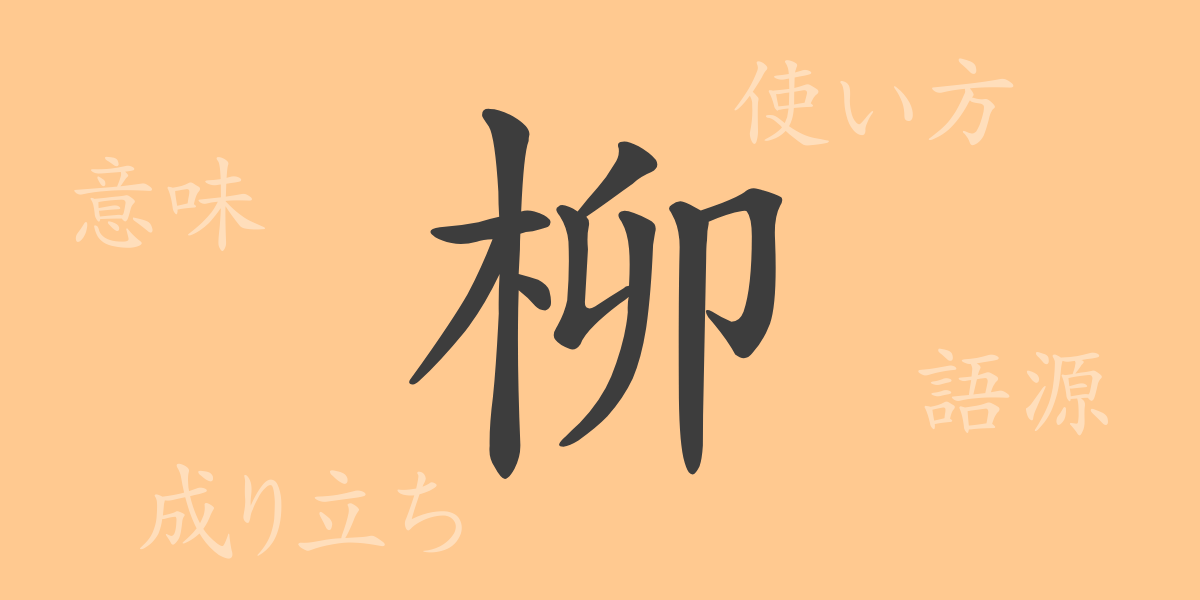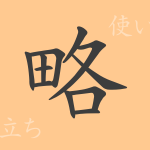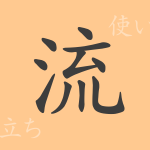The willow tree, with its soft green leaves gracefully swaying over the water’s surface, blends quietly into the Japanese landscape. This beautiful tree holds a special place in Japanese culture and language, frequently appearing in many poems and literary works. In this article, we will focus on the 常用漢字 (jōyō kanji) “柳” (yanagi), exploring its origins, meanings, usage, and even idioms and proverbs involving the willow tree.
柳の成り立ち (Origin of Yanagi)
The character “柳” (yanagi) is composed of the character for “tree” (木, ki) combined with “卯” (u) as a phonetic component. In ancient China, the willow tree was associated with the sound “卯” (u) due to its flexible branches. This combination resulted in the creation of the character “柳” (yanagi), referring to a tree with soft and pliable branches.
柳の意味と用法 (Meaning and Usage of Yanagi)
Yanagi (柳) is used to evoke images of its characteristic flexible branches and leaves. In Japan, the willow tree often symbolizes the arrival of spring in poetry and haiku, and it is also used to depict picturesque and emotional landscapes. Additionally, it appears in idioms and proverbs such as “柳の下にはどじょうがいる” (yanagi no shita ni wa dojo ga iru), conveying life lessons and wisdom.
柳の読み方・画数・部首 (Reading, Stroke Count, and Radical of Yanagi)
The kanji “柳” (yanagi) is used in various forms in the Japanese language.
- Reading: In on’yomi (音読み, Chinese reading), it is read as “リュウ” (ryū), and in kun’yomi (訓読み, Japanese reading), it is read as “やなぎ” (yanagi).
- Stroke count: It has a total of 16 strokes.
- Radical: The radical is “木” (ki), which is commonly used in kanji representing plants and trees found in nature.
柳を使った熟語・慣用句・ことわざとその意味 (Idioms, Proverbs, and Phrases Involving Yanagi)
Here are some idioms, proverbs, and phrases that include “柳” (yanagi):
- 柳眉杏眼 (りゅうびきょうがん, ryūbikyōgan): A phrase used to describe the beautiful eyebrows and eyes of a woman.
- 柳に雪折れなし (やなぎにゆきおれなし, yanagi ni yuki ore nashi): A proverb meaning that flexible things are resilient in the face of adversity.
- 柳の下にはどじょうがいる (やなぎのしたにはどじょうがいる, yanagi no shita ni wa dojo ga iru): An idiom suggesting that if something has happened once, there is a possibility it might happen again.
柳についてのまとめ (Conclusion on Yanagi)
The willow tree, with its beauty and flexibility, is deeply rooted in Japanese culture and language. Its presence can be seen not only in poetry and literary works but also in everyday expressions and proverbs conveying wisdom. The kanji “柳” (yanagi) will continue to be a part of the landscape woven by nature and people’s lives, remaining in the hearts of the Japanese for a long time to come.

























